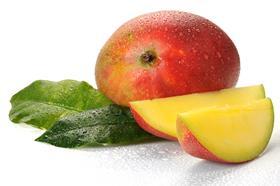
Nanotechnology could provide the answer to extending the shelf life of fresh fruit, researchers have claimed.
According to the Active & Intelligent Packaging Industry Association (AIPIA), Canadian, Indian and Sri Lankan researchers have created a nanotech application of a natural plant extract called hexanal, which can be used to delay fruit ripening.
Hexanal inhibits a plant enzyme during a fruit’s ripening process, with scientists discovering that spraying mango orchards with a slow concentration of the compound slowed fruit ripening by three weeks.
The breakthrough could prove particularly helpful for bananas, mangoes and papayas, and in countries where refrigeration is lacking.
The same team of researchers is also developing ‘smart packaging’ systems, made from materials such as banana fibre, which slowly release hexanal to extend storage life after fruit is harvested. In field trials, AIPIA claimed, growers were able to earn up to 15 per cent more for their crop by phasing the ripening process.
Once harvested, the sprayed mangoes remained fresh for up to 26 days in cold storage and 17 days at room temperature. Tests are already underway in Africa on other fruits.
Hexanal is already approved as a food additive in the US, and AIPIA stresses that it leaves no harmful residues. “It’s a very natural compound,” said one of the researchers. “In our academic research we have found that if you spray or dip the fruit with it, within 48 hours it’s all gone — you can’t find even a trace using a microscope.”
A range of new materials is being developed, including wraps containing electro-spun or sprayed nanoparticles infused with hexanal for slow release of hexanal vapours.
The partners hope to commercialise the process in due course.



